
Behind the bricks: a story of authenticity and sustainable choices
At Coir Products by Salike®, we take pride in the quality of our products and the positive impact we make on the communities who help
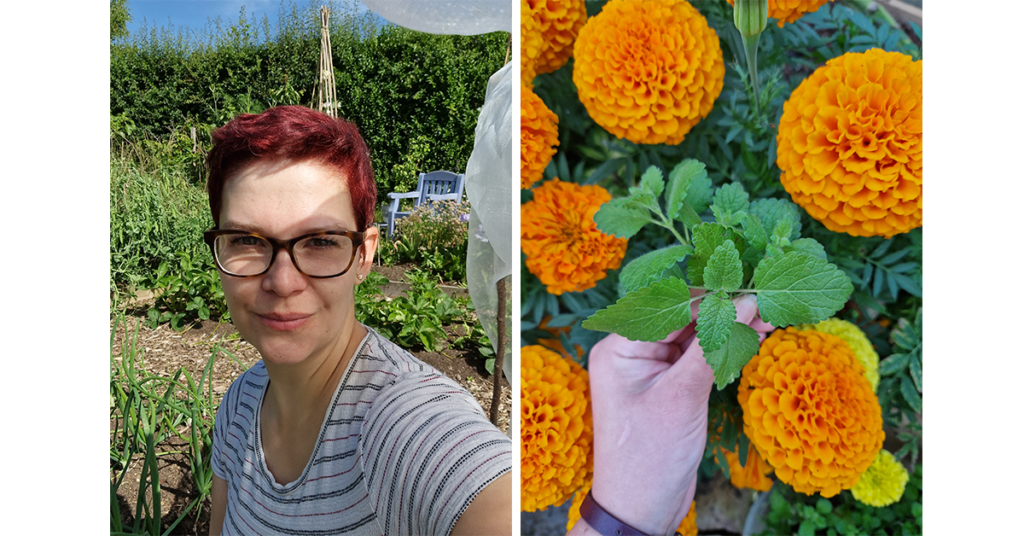
CoirProducts.co.uk Featured Grower this week is Sarah @cotswoldpotager. In this blog post, Sarah shares with us how she got into gardening, what she loves to grow, some of the most valuable lessons she has learnt, and much more. She tells us how gardening has helped with her mental health, and reminds us to ‘let nature into our garden’. Read on to learn all about Sarah’s gardening journey.
Growing up, Sarah’s interest in gardening stemmed from helping her mum plant flowers in their garden. “My mum is an amazing gardener,” she says. Later, it was only when she had children herself that she got into growing vegetables with them. Recounting those early days of growing, she adds, “the first thing we grew was peas and after seeing them grow and tasting fresh peas straight from the pod I was hooked!” Although she started growing in her small back garden, Sarah says, “when my mum moved to the same village as me she had a long garden and I managed to beg her to lend me the space at the end for a kitchen garden.”
Much of what Sarah has learnt about gardening has been through trial and error. Sarah started off with raised beds made out of reclaimed scaffold boards, as she is on heavy clay, yet after 4 years they started to fall apart. “When I started to take them apart to replace them, I realised how many slugs were hiding against the wood! I quickly realised that having no sides to my beds was going to be much better for keeping pests under control (I am an organic gardener, so I don’t use any chemicals or pesticides) and after 4 years of practicing no dig the clay was in much better shape for growing in,” she adds.

Sarah loves growing tomatoes, and this year, she has grown more heritage varieties. “I just absolutely love the rich flavour they bring to sauces. I have a bit of a sweet tooth, so my all time favourite variety to grow is sweet aperitif. It’s a small red cherry and the sweetest variety I have found so far,” she explains.
When it comes to her gardening successes, Sarah says she has done a lot of research into the best techniques of growing tomatoes, as that’s her favourite thing to grow, and has spent time adapting her growing style for those. In addition, this year she also tried growing both celeriac and Florence fennel, and both have done really well despite the hot dry weather. She adds that this is something she is proud of.
Her most valuable lesson has been to allow nature into the garden a lot more than she used to. Explaining what she means, Sarah says, “I used to think my kitchen garden had to be pristine. Straight lines of vegetables, absolutely no weeds and any spare land covered in weed membrane to stop the grass and weeds growing. As I’ve grown as a gardener, however, I have realised how important those “messy” areas are to my garden. They encourage beneficial wildlife which help me keep the pests down in natural and eco friendly ways. They encourage wildflowers to grow which brings in pollinators and creates homes and food for some of our diminishing native wildlife. It’s been the biggest joy to me letting go a bit and letting nature back into the garden.”
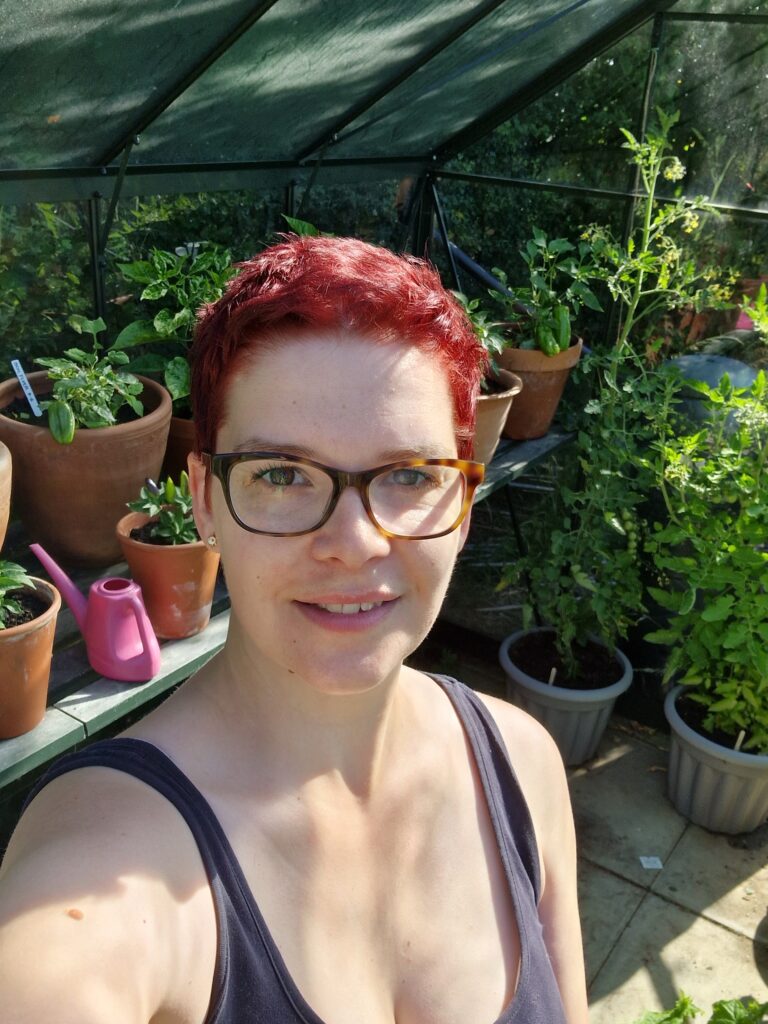
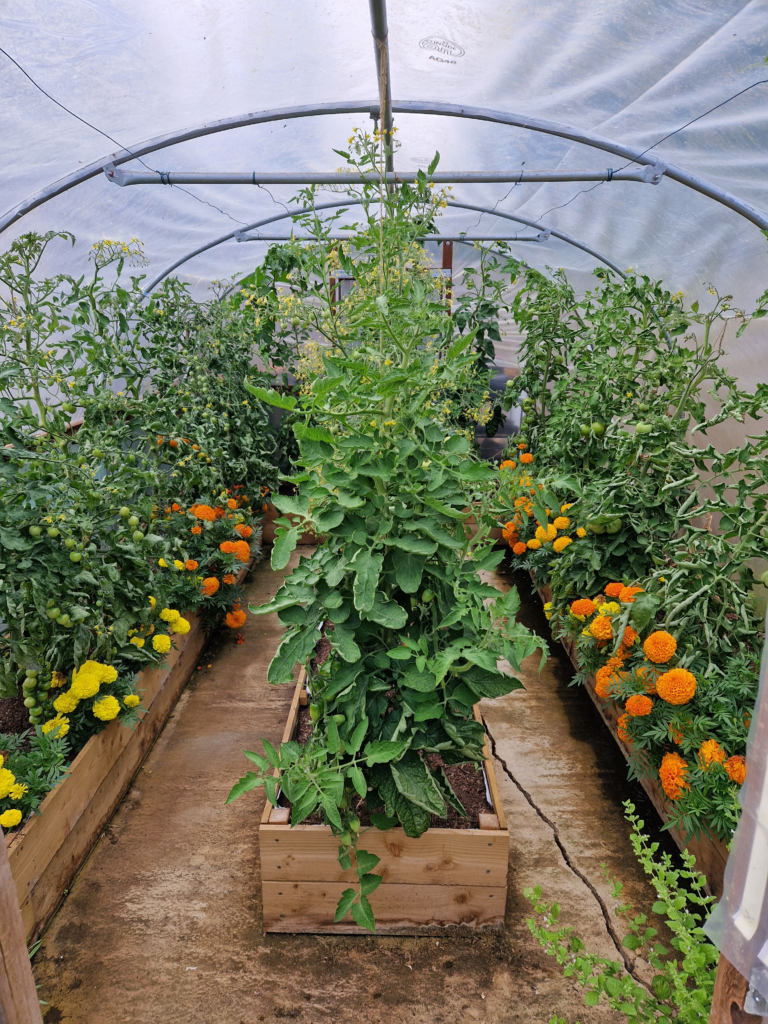
On the other hand, she finds the fluctuations in weather and temperatures over the past few years really tough to keep up with. “I have started early crops at the same time I have always done, but then we will get a big storm and I will have to start from scratch. The drought this year has been particularly tough and a lot of my plants have suffered but I accept that gardening has its ups and downs and that’s what makes the successes so rewarding,” she explains.
Sarah also gave us a snapshot about what a typical day looks like for her when it comes to tending to her garden. “After I have dropped the kids off at school I head straight to the kitchen garden to water the greenhouses and polytunnels. Whilst I am watering I check over the plants for any pests or diseases and usually snack my way through on cherry tomatoes and baby cucumbers!” Thereafter, she would do a walk around the no dig beds again checking for any pests and depending on the time of year checking what needs to be harvested or planning what will be going into the ground next. Next, she says, “I pull up any weeds which are close to flowering or seeding to prevent them spreading but I tend to leave the small ones to hoe out when I have the time. Just walking around the garden is enough to relax me and make me forget about all the struggles of daily life. It’s pure bliss.”
The benefits of gardening for Sarah have been immense. “I suffer from a panic disorder and PTSD and I cannot believe how much the kitchen garden helps me with my mental health. Yes it can be stressful when plants fail or weeds take over but just being in nature and having something to focus on helps me so much. I quite often lie just on the floor, level with my plants and listen to the animals or wind and it truly is so grounding and relaxing. It can be tough to push myself to go some days but when I am there I never want to leave.”

Charles Dowding has always been an inspiration for Sarah, especially with his no dig practice but even more so after visiting one of his talks and hearing him talk so passionately about how it benefits soil health, she has learnt how that actually makes gardening so much easier and more enjoyable! Also, after visiting Highgrove and having a guided tour which described how Prince Charles likes to leave weeds and nettles around for food for the wildlife also inspired Sarah to let go and let more nature into the garden.
What she enjoys the most about gardening is being in nature and seeing all her hard work rewarded with something she can use to feed her family. “I still get the same excitement seeing a little seedling pop its head up out of the soil as I did the very first time I grew something,” she says.
Sarah has also recently started using your coir products, “but now I cannot be without them!” She goes on to add, “the biggest benefit I found to them this year was using them to grow my loofah which don’t like to have their roots disturbed. By sowing the seeds in coir pots and then potting the whole pot into a bigger coir pot and then they into the beds in my polytunnel, the roots haven’t been touched and it’s the first year I have successfully managed to grow them.”
In sharing tips with other gardeners and growers, Sarah reminds us that it is important to relax when it comes to how your plot looks. “I spent so many wasted hours worrying about every little weed I saw or the messy corners but gardening is about enjoying being outdoors and in nature and eating the freshest, tastiest food you can find anywhere.”
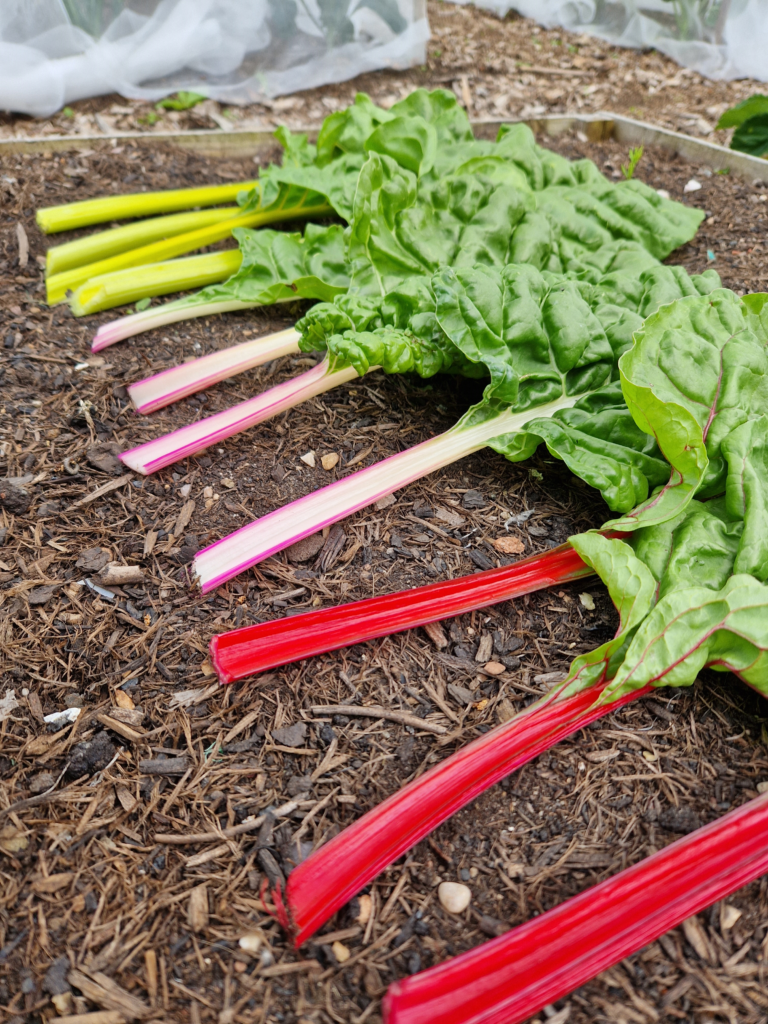
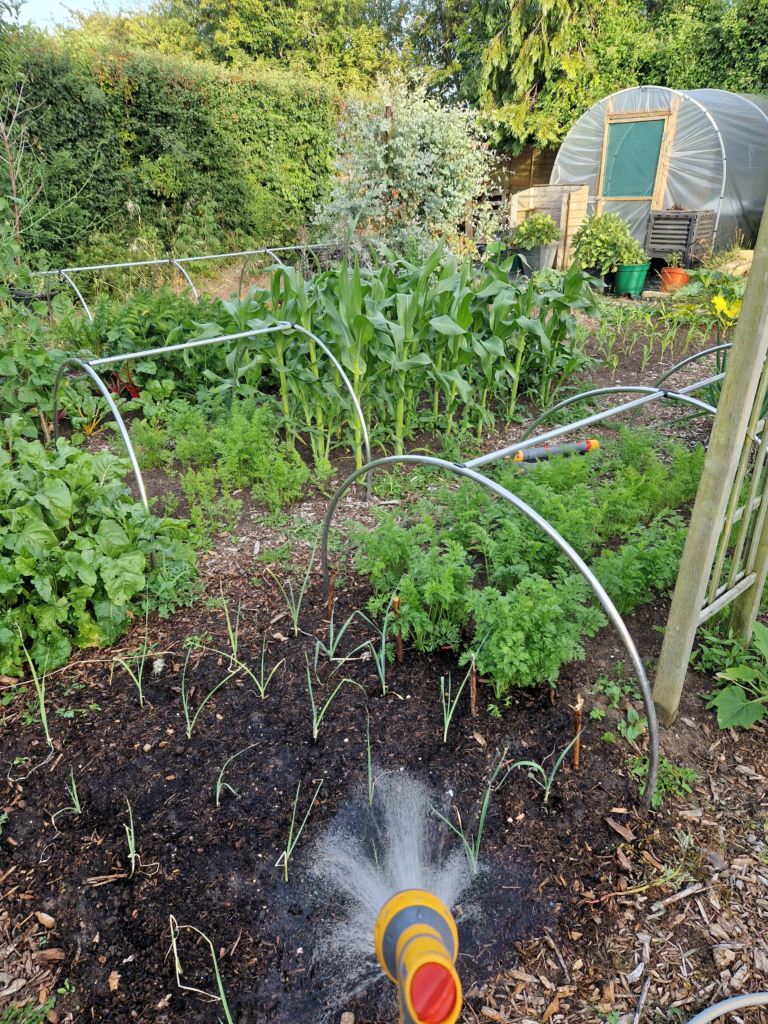
She goes on to encourage as many people as possible to create wildlife habitats and spaces in their gardens, however simple they are. “This can be something as small as a bee house hanging on the side of a shed or as large as a pallet bug hotel. A pond is a fantastic way to encourage frogs and toads to your garden which will munch through hundreds of slugs a night. It doesn’t need to be big, simply a washing up bowl buried in the ground with oxygenating plants and a ramp for animals to climb out if they fall in,” she explains.
And lastly, she says, “whatever you do please do not use slug pellets no matter how upsetting it is so see your precious veg getting munched. Encouraging natural predators like hedgehogs and frogs to your garden will mean next to no pest damage. I have a family of hedgehogs with young in the garden and I hardly ever suffer with slug damage!”

At Coir Products by Salike®, we take pride in the quality of our products and the positive impact we make on the communities who help
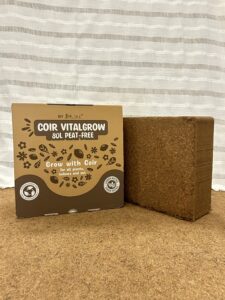
In today’s world, gardening is much more than a pastime; it’s a mindful choice to support biodiversity, boost sustainability, and cultivate well-being. At CoirProducts of